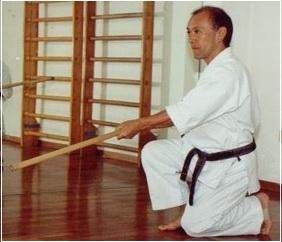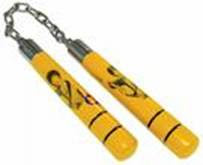
There's a reason that golf hasn't been in the Olympics since 1904—the sport simply doesn't need the Games to thrive.
Why isn't golf in the Olympics?
There's a reason that golf hasn't been in the Olympics since 1904—the sport simply doesn't need the Games to thrive.
When did golf return to the Olympics?
At the IOC session in Copenhagen in October 2009, the IOC decided to reinstate this event for the 2016 Summer Olympics. The International Golf Federation is governing body for golf at the Olympic Games.
Why did the Olympic Games stop being amateur?
( The Economist argued, in August 1980, that only full professionalisation would stop sport from falling “into communist hands”.) And so, in the late 1980s, having spent decades ignoring de facto professionalism, IOC federations began dropping their formal amateur requirements, letting the governing bodies of each sport decide who could compete.
Which golfers have pulled out of the Olympics?
Jordan Spieth pulled out. Jason Day pulled out. So did Dustin Johnson and Adam Scott. Rory McIlroy pulled out, then said he wouldn’t even watch golf at the Olympics; apparently he was worried about getting Zika through his TV. I don’t question their patriotism.

Why did golf stop in the Olympics?
Events. A men's individual tournament was planned for the 1908 London Games, but an internal dispute amongst British golfers led to them boycotting the event, leaving 1904 gold medallist George Lyon as the only competitor. Offered the gold medal by default, Lyon refused to accept it.
Has golf ever been an Olympic sport?
Golf in the Olympic Games At the 121st IOC session in the beautiful Danish city, golf was finally reinstated to the Summer Olympics, initially for Rio de Janeiro in 2016 and Tokyo in 2020. The inaugural golf tournament in 1900 was won by Charles Sands of the USA with scores of 82 and 85.
When did golf get removed from the Olympics?
1921: Golf was removed from the list of optional sports at the VII IOC Congress held in Lausanne. Re-entry • 2009: At the 121st IOC Session held in Copenhagen in October, it was decided to re-include golf on the programme of the Olympic Games in Rio in 2016.
Did Tiger Woods play in the Olympics?
Has Tiger Woods played the Olympics? Tiger Woods, sadly, has never played in the Olympics in his career so far. And the main reason for it is that golf was not an Olympic sport until 2016. In fact, it has been out of the summer Olympics for 112 years, however; golf was finally included at the Rio Olympics in 2016.
Rory McIlroy had it right
If Rory McIlroy says he won't even watch the Olympic golf tournament, is it even worth having? (Mike Groll/Associated Press)
Olympics are too big
Just about everyone says the Olympics have become too big. In Rio, there will be 306 events in 42 disciplines (or 41 plus golf) and more than 10,000 athletes (well, competitors). There are 37 venues. The budget for the games approaches $10 billion US, and will almost certainly end up considerably higher.
Why shouldn't golf be in the Olympics?
Why Golf Shouldn't Be in the Olympics. Golf has not been an Olympic sport since the 1904 games in St. Louis, where George Lyon of Canada took the gold medal. Although the 2009 International Olympic Committee decision to add golf to the Olympic program has been greeted with much fanfare, the decision is ultimately not a good one for professional ...
What is Tiger Woods' take on Olympic golf?
The following unbylined quote from Tiger Woods sums up the professionals’ take on Olympic Golf: " It would be great to have an Olympic gold medal...but if you asked any player, 'Would you rather have an Olympic gold medal or green jacket or Claret Jug...more players would say the majors."
Did Tiger Woods win the 1999 National Car Rental Classic?
However, as Dave Whitley writes, regarding a potential Tiger Woods gold medal, “For Woods, it might outrank winning the 1999 National Car Rental Classic. I doubt it, though, since he picked up $540,000 for that weekend's work.”.
Will the Olympics dilute golf?
Last week, newly-ordained Ryder Cup captain Tom Watson said that he felt Olympic Golf will “dilute” the four major championships. This is both as a function where the Olympics fall on the calendar—between the Open Championship and the PGA—and the fact that professional golf already has four “pinnacle” events during the same relative period of time. Jamming another “significant” event into top professionals' already-overburdened summer schedules adversely influences the majors.
Do golfers care about the Olympics?
Professional golfers care about playing in the Olympics about as much as professional soccer players do—that is, not very much. A significant portion of pros, including Ernie Els and Nick Faldo, think that Olympic Golf is the business of amateurs, not professionals.
When was golf in the Olympics?
Golf was featured in the Summer Olympic Games official programme in 1900 and 1904. At the IOC session in Copenhagen in October 2009, the IOC decided to reinstate this event for the 2016 Summer Olympics.
How many golfers competed in the 1900 Olympics?
22 golfers competed in 1900. The 1904 tournament featured 77 golfers. Albert Lambert was the only golfer who competed both times; a total of 98 different golfers competed throughout the brief history of Olympic golf before it was brought back in 2016.
When did golf come back to the Olympics?
Until 2016, golf had been featured in the Olympics only twice: in the 1900 and 1904 Games. The 1900 Paris Olympics featured a men’s and a women’s event. In 1904 in St. Louis, Missouri, a team golfing event supplanted the women’s event. After a 112-year hiatus, the sport returned to the Games for the 2016 Summer Olympics in Rio de Janeiro.
When did baseball become an Olympic sport?
Finally, baseball was added as an official Olympic sport in 1992, with its sister sport softball joining in four years later.
What was the Olympic sport in 2004?
2004 Olympic Games: synchronized swimming. The Canadian team competing in synchronized swimming at the 2004 Olympic Games in Athens. Jamie Squire/Getty Images. Synchronized swimming was a latecomer to the Olympics, debuting as an Olympic sport in the 1984 Los Angeles Games.
What was the sport of tug of war?
This favorite childhood pastime and field-day activity was an Olympic event from 1900 to 1920. Part of the track-and-field program, tug-of-war consisted of five-person teams vying for a victory of strength. Sweden, Great Britain, and combined country teams claimed the most wins over these years.
How does curling work?
Curling can be considered the ice version of lawn bowls, and, trust us, it’s just as odd. Each team consists of four players alternating sliding 44-pound (20-kg) stones across ice to a target (the tee) about 130 feet (40 meters) away. As the stone is traveling, two players vigorously brush the ice ahead of the stone’s path. This warms the ice, creating a layer of water that slows the deceleration of the stone. While the sport sounds obscure, it’s been around for a while, dating back to Scotland in the early 16th century. Curling was introduced in the first Winter Olympic Games in 1924 at Chamonix, France, and then appeared as a demonstration sport in 1988 and 1992. It achieved medal status at the 1998 Nagano, Japan, Games, and an additional event—mixed doubles—joined the men’s and women’s events in 2018.
When was skeleton sledding introduced to the Olympics?
Skeleton Sledding. Nominally the creepiest of Olympic sports, skeleton sledding was reintroduced to the Winter Olympics at Salt Lake City, Utah, in 2002. Its preceding appearance was in 1948, and before then it had appeared in the 1928 Olympics.
When did rugby sevens come back?
When he left the IOC, rugby dropped off the Olympic stage and remained dormant until the IOC voted to reinstate a version of the game—rugby sevens—into the Summer Olympics, beginning with the 2016 Games in Rio de Janeiro.
Why were the Olympics dropped?
There is no single reason why the sports were dropped, but rather a series of events that caused their Olympic demise. The first step came in the 1990s when the IOC decided to cap the number of sports included in any Summer Olympics to 28. Prior to that decision the Olympic schedules had grown from the traditional sports to include newer sports ...
When did baseball and softball become part of the Olympics?
This is the first Olympics since 1980 to not include baseball in some form, being a demonstration sport in 1984 and 1988 and gaining full medal status in 1992. In 2005 the International Olympic Committee dropped baseball and softball from the 2012 program. Softball teams first competed in the Olympics in 1996 in Atlanta.
How many gold medals did Cuba win in baseball?
There is a fair amount of parity within those regions for baseball — Cuba won three gold medals and the United States and South Korea one each. Softball had much less, with the U.S. only losing one of the four gold medals awarded, and that came in 2008, three years after the sport’s fate had been decided.
What sport was in the 1900s?
Golf, which had been in the 1900 and 1904 games, is expected to draw some of the top golfers. Their assent was important in the sport’s inclusion. Rugby sevens is a version of the sport which gets huge television ratings for its major international competitions.
Did the Americans qualify for the 2004 presidential election?
The Americans didn’t qualify in 2004.
Why did tennis sat out the games?
Tennis, for example, had sat out the games since 1924 because of the ban on professional players. When it fully returned in 1988 Steffi Graf, who had just won all four grand slams, prevailed. (Other sports saw the relaxed rules as a threat.
What was the Olympic Committee accused of?
Yet from the start, as Matthew Llewellyn and John Gleaves describe in their book, “The Rise and Fall of Olympic Amateurism”, the Olympic committee was accused of hypocrisy. Some of the early games, such as in Paris in 1900, were attached to world trade fairs, shrines to capitalism not classicism.
Why did the IOC drop the amateur requirement?
And so, in the late 1980s, having spent decades ignoring de facto professionalism, IOC federations began dropping their formal amateur requirements, letting the governing bodies of each sport decide who could compete. Professionalism, they reasoned, would help to attract the world’s biggest stars , and thus improve the Olympics’ commercial prospects. Tennis, for example, had sat out the games since 1924 because of the ban on professional players. When it fully returned in 1988 Steffi Graf, who had just won all four grand slams, prevailed. (Other sports saw the relaxed rules as a threat. Football’s governing body, for example, worried that a star-studded Olympic tournament might eclipse its own World Cup, and so allowed only under-23s to participate.) The symbolic end of the amateur era came in 1992 in Barcelona, when a “Dream Team” of American basketballing superstars (pictured), including Michael Jordan and Magic Johnson, captured the world’s affection and, inevitably, the gold medal.
When were the first modern games held?
Hand-picked stories, in your inbox. A daily email with the best of our journalism. Sign up. The early modern games —the first of which were held in Athens in 1896 —reflected this. The rules stated that participants must never have competed for money nor, indeed, ever would.
